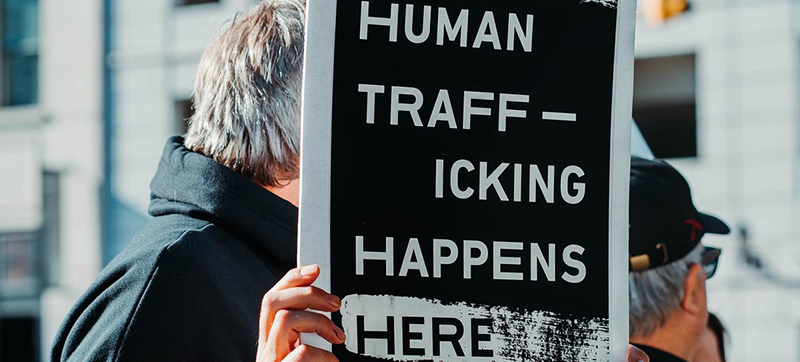 Human Trafficking
Human Trafficking New York: Fewer victims of people trafficking are being identified, even as the COVID-19 pandemic and other crises are increasing their vulnerability, a new report released on Tuesday by the UN Office on Drugs and Crime (UNODC) has found.
Globally, the number of victims detected fell by 11 per cent in 2020 from the previous year, driven by fewer detections in low and medium-income countries.
The number of convictions for trafficking offences also fell by 27 per cent over the same period, accelerating a longer-term trend registered by UNODC since 2017.
Sharper decreases were registered in South Asia (56 per cent), Central America and the Caribbean (54 per cent) and South America (46 per cent).
Pandemic effect
According to the report, despite reducing opportunities for traffickers to operate, the pandemic may have weakened law enforcement's capacity to detect victims.
“We cannot allow crises to compound exploitation”, said UNODC Executive Director Ghada Waly.
“The UN and the donor community need to support national authorities, most of all in developing countries, to respond to trafficking threats, and to identify and protect victims, especially in states of emergency.”
The analysis also found that fewer cases of trafficking for sexual exploitation were detected during the pandemic, due to the closure of public spaces.
Related restrictions may have pushed this form of trafficking into more concealed and less safe locations, making it harder to identify victims.
‘Self-rescued’ victims
Court case analysis featured in the report also shows that trafficking victims who are identified, mostly escape from traffickers on their own and are in effect ‘self-rescued’.
41 per cent of victims escaped and reported to authorities on their own initiative compared to 28 per cent of victims who were located by law enforcement, and 11 per cent by members of the community and civil society.
The report said this was especially alarming considering many may not identify themselves as victims, or may be too afraid to attempt an escape at all.
War and conflict
War and conflict offer opportunities for traffickers to exploit, with the war in Ukraine elevating trafficking risks for the millions displaced.
The report shows how most victims originate in and are trafficked to countries in Africa and the Middle East.
There are also higher levels of impunity in Sub-Saharan Africa and South Asia. Countries in these regions convict fewer traffickers and detect fewer victims than the rest of the world.
At the same time, victims from these regions are identified in a wider range of destination countries than victims from other regions.
Examination of court cases found that female victims are subject to physical or extreme violence at hands of traffickers, at a rate three times higher than males.
Children are subjected to seizure and trafficking almost twice as often as adults.
Women in the dock
At the same time, women investigated for people trafficking are also significantly more likely to be convicted than men.
This suggests that the justice system may discriminate against women and that the role of women in trafficking networks may increase the likelihood that they are convicted of the crime.
The seventh Global Report on Trafficking in Persons is based on data collected from 141 countries over the 2017-2020 period and an analysis of 800 different court cases.
Support Our Journalism
We cannot do without you.. your contribution supports unbiased journalism
IBNS is not driven by any ism- not wokeism, not racism, not skewed secularism, not hyper right-wing or left liberal ideals, nor by any hardline religious beliefs or hyper nationalism. We want to serve you good old objective news, as they are. We do not judge or preach. We let people decide for themselves. We only try to present factual and well-sourced news.







